In relationships, some challenges are normal, but constant issues like being monitored too closely, facing frequent criticism, or having someone make all the decisions for you are red flags. These signs indicate a controlling relationship, which can harm your independence and happiness.
Spotting these signs early is important to assess the health of your relationship and ensure you’re in a supportive and respectful partnership.
Key Takeaways
- Excessive jealousy in a relationship often reflects deep-seated insecurities and a desire to control.
- Constant monitoring and invasion of privacy can lead to emotional distress and a loss of autonomy.
- Financial control is a tactic used to undermine confidence and restrict independence, impacting one’s financial health and self-worth.
- Isolation from friends and family erodes external support systems, increasing dependency on the controlling partner.
Excessive Jealousy
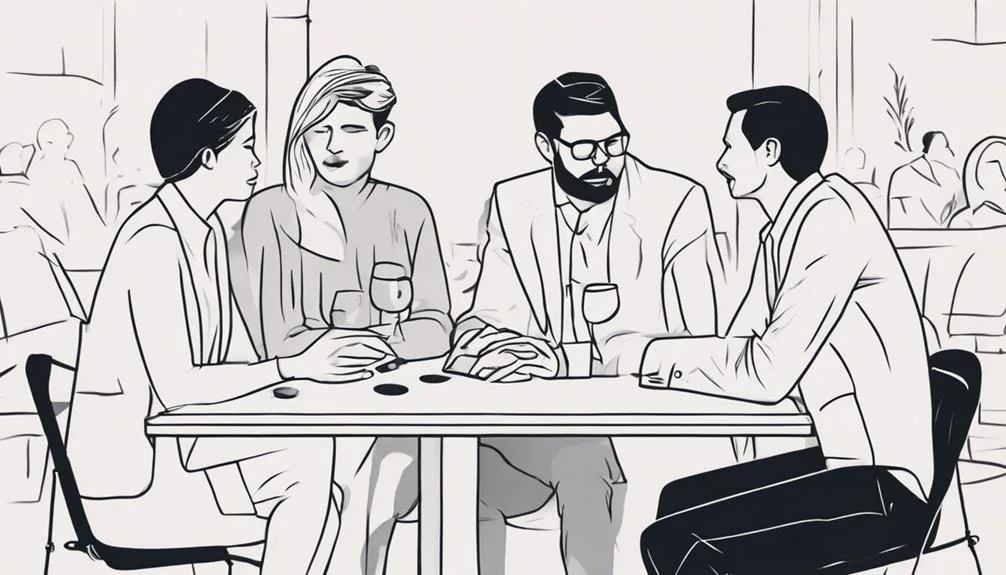
Often, excessive jealousy serves as a red flag in a relationship, indicating a controlling partner who may not trust you. This lack of trust manifests through their inability to respect your independence and could signal deeper trust issues.
Establishing healthy boundaries becomes essential as they might perceive your interactions with others as threats, regardless of the context. Their jealousy isn’t just about who you’re with or what you’re doing; it’s about their own insecurities and desire to control.
When your partner’s jealousy escalates to the point where your freedom feels compromised, it’s vital to address these trust issues. A relationship thrives on mutual respect and understanding, not on the shackles of suspicion and control.
Recognizing this early can help you navigate potential red flags and foster a healthier dynamic.
Constant Monitoring
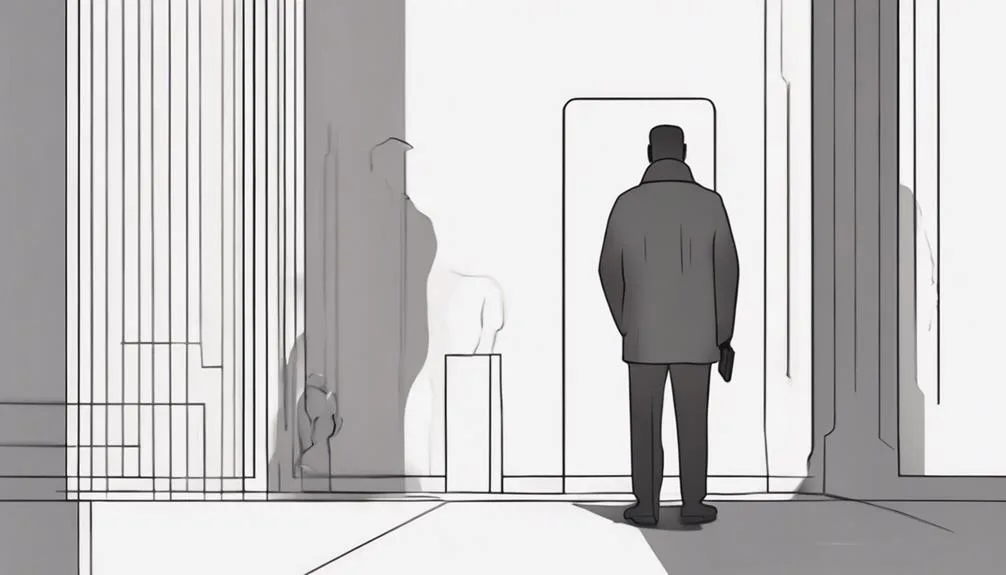
Another unsettling sign of a controlling relationship is when your partner insists on constantly monitoring your activities and communications. This behavior isn’t just about being overly curious; it’s a profound privacy invasion that signals deep trust issues. Imagine feeling watched every moment, your personal space no longer yours.
| Your Feeling | Their Justification |
|---|---|
| Suffocated | ‘I’m just worried about you.’ |
| Violated | ‘I need to know you’re safe.’ |
| Distrusted | ‘I can’t help it if I care too much.’ |
This table reflects the emotional turmoil you’re likely experiencing. It’s not about caring; it’s control. Recognizing this pattern is crucial for addressing the issue and reclaiming your autonomy.
Financial Control
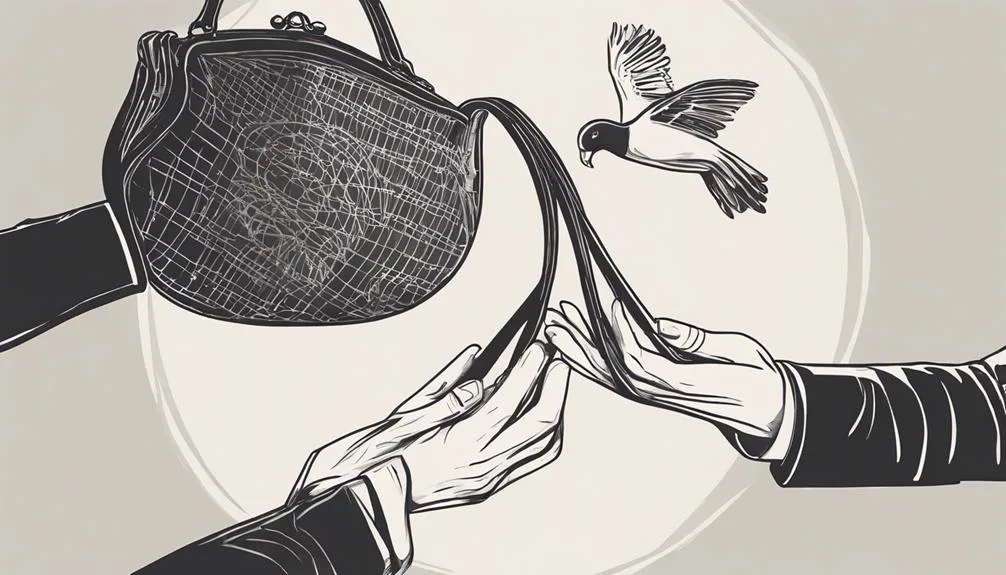
Seizing control over your finances marks a significant red flag in a relationship, indicating a deeper desire to dominate and restrict your independence. When your partner insists on having joint accounts for all financial matters or deliberately sabotages your credit, it’s a clear sign of their intent to control not just your current spending, but your future financial freedom as well.
- Insisting on having sole access to bank accounts
- Making financial decisions without your input or consent
- Monitoring your spending obsessively
- Criticizing your financial decisions to undermine your confidence
- Engaging in credit sabotage by taking out credit in your name or ruining your credit score
These actions not only impact your financial health but also your sense of autonomy and self-worth.
Isolation From Friends and Family

While financial control strips away your economic independence, being isolated from friends and family attacks your social freedom, marking another manipulative tactic in controlling relationships. This method subtly begins with social media restrictions, where you’re coerced into unfollowing certain people or limiting your online interactions. Soon, it escalates to unexplained absences in gatherings, with excuses that don’t quite add up.
| Behavior | Immediate Impact | Long-Term Effect |
|---|---|---|
| Social media restrictions | Reduced communication | Loss of support network |
| Unexplained absences | Confusion and guilt | Emotional isolation |
| Discouraging visits | Immediate loneliness | Dependency on partner |
| Monitoring phone calls | Invasion of privacy | Fear of reaching out |
| Criticizing friends/family | Doubt in relationships | Severed connections |
These tactics are designed to erode your external support, making you more dependent and easier to control.
Frequent Criticism

Over time, frequent criticism can erode your self-esteem, making you question your worth and decisions. This relentless negativity often leads to a noteworthy self-esteem impact, deeply affecting how you view yourself. Additionally, it can cause a communication breakdown, as you might start avoiding conversations to escape criticism.
- Your partner nitpicks everything you do, from the way you dress to the meals you prepare.
- Slight mistakes are blown out of proportion, making you feel inadequate.
- Compliments are rare, replaced by disparaging comments that chip away at your confidence.
- You’re constantly on edge, trying to pre-empt criticism by altering your behavior.
- Positive achievements go unrecognized, leaving you feeling unappreciated and undervalued.
This pattern of frequent criticism can significantly harm your emotional well-being.
Making Decisions for You
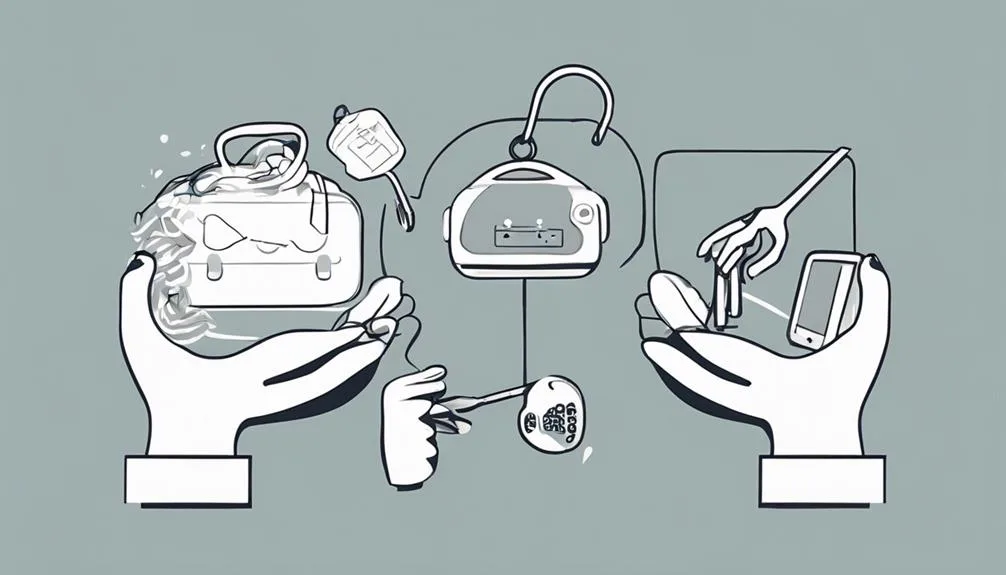
A controlling partner often takes over decision-making, insisting they know what’s best for you in every aspect of your life. This intrusion severely undermines your personal autonomy, making you feel as if your opinions and desires don’t matter.
Such behavior can start subtly, with them making small decisions for you, and gradually escalate to more significant aspects of your life, including your career, friendships, and even daily choices like what to wear. This erodes your decision autonomy, leaving you dependent on their approval and guidance.
It’s essential to recognize this red flag early on. Your ability to make choices is a fundamental part of your identity and independence. Don’t let anyone strip that away from you.
Threats and Manipulation
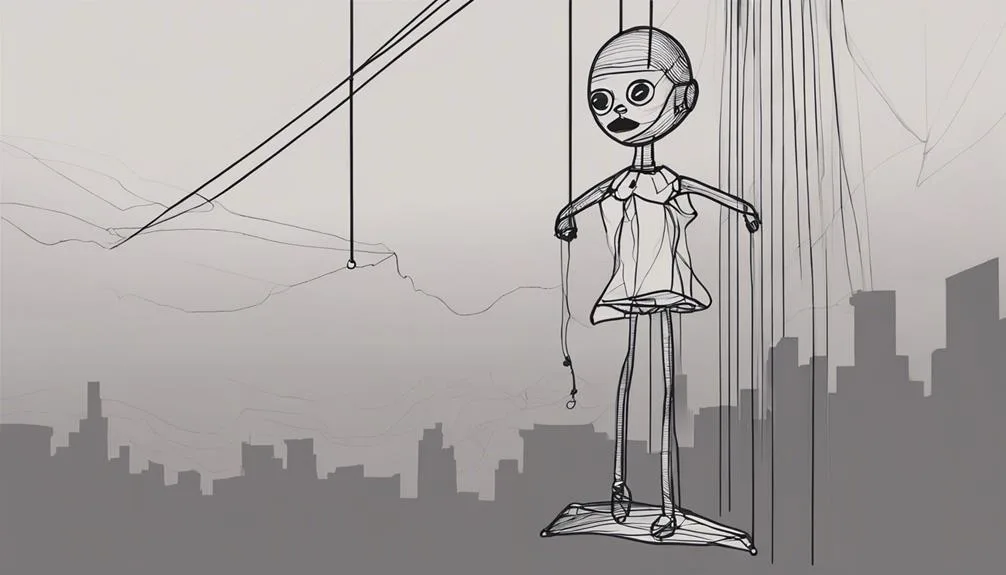
Another alarming sign of a controlling relationship is when your partner resorts to threats and manipulation to bend you to their will. This behavior isn’t only harmful but deeply unsettling. It’s essential to recognize these patterns:
- Gaslighting tactics making you doubt your own memory or feelings
- Threats to leave or harm themselves, creating a cycle of fear and dependency
- Subtle or overt public humiliation to undermine your confidence
- Manipulating emotions by alternating between kindness and cruelty, keeping you off balance
- Using personal information against you, as a weapon to maintain control
Each of these actions is designed to erode your sense of self and independence. Recognizing them is the first step toward seeking help and reclaiming your autonomy.
Unreasonable Demands for Your Time
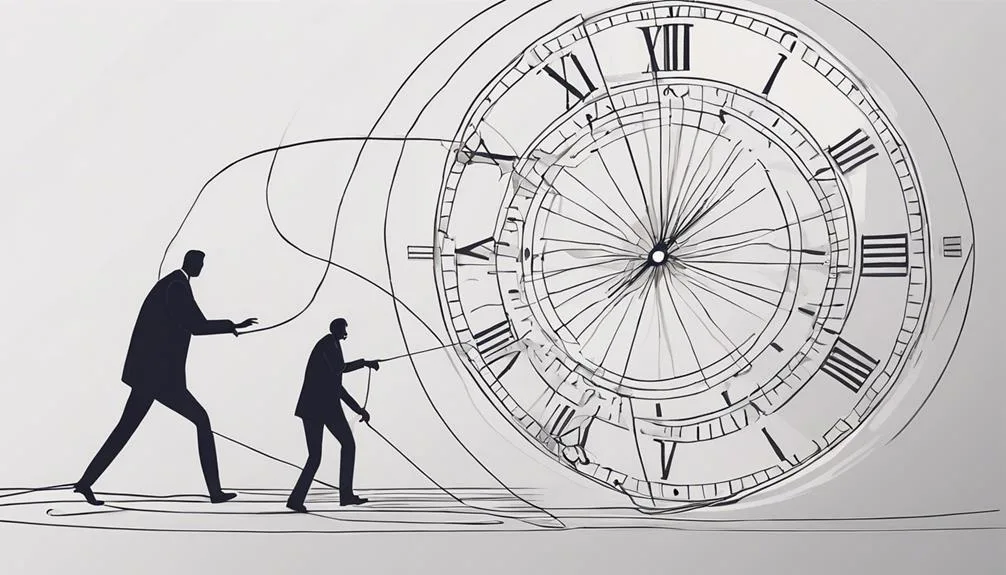
Moving beyond threats and manipulation, it’s also important to recognize when your partner’s demands for your time become unreasonable and controlling. If you find yourself constantly having to sacrifice your personal hobbies or career ambitions to meet their expectations, it’s a sign that the relationship is veering into unhealthy territory.
A controlling partner may not see the value in you pursuing your interests or advancing in your career, insisting instead that you devote most of your time to them. This imbalance not only stifles your personal growth but also isolates you from other fulfilling aspects of your life.
Lack of Respect for Boundaries
When your partner repeatedly ignores or dismisses your personal boundaries, it’s a clear sign of a controlling relationship. This disrespect can manifest in various unsettling ways. Imagine:
- Your partner constantly checking your phone without permission, a blatant personal space invasion.
- Them making decisions for you, especially in areas where you’ve explicitly asked for autonomy.
- Offering unsolicited advice on everything from your career to your clothes, disregarding your right to make choices.
- Encroaching on your alone time, refusing to acknowledge your need for space.
- Dismissing your feelings and thoughts as irrelevant or overreactive, effectively silencing your voice.
These actions not only undermine your independence but also signal a deeper issue of control. Recognizing these signs is essential in addressing and rectifying the unhealthy dynamics in your relationship.
Conclusion
Recognizing signs such as unwarranted jealousy, constant surveillance, and financial domination indicates a concerning dynamic in a relationship.
The experience of being cut off from loved ones, subjected to persistent criticism, or stripped of autonomy is far from benign.
Regular encounters with threats, manipulative tactics, or disproportionate demands on your time, coupled with disrespect for personal boundaries, signal a critical juncture.
A true partnership should foster growth and respect, not restrict or demean.
Reflecting on these patterns, one must ask: does your relationship elevate your well-being, or constrain it?
This question, simple yet profound, underscores the essence of healthy versus controlling relationships.

